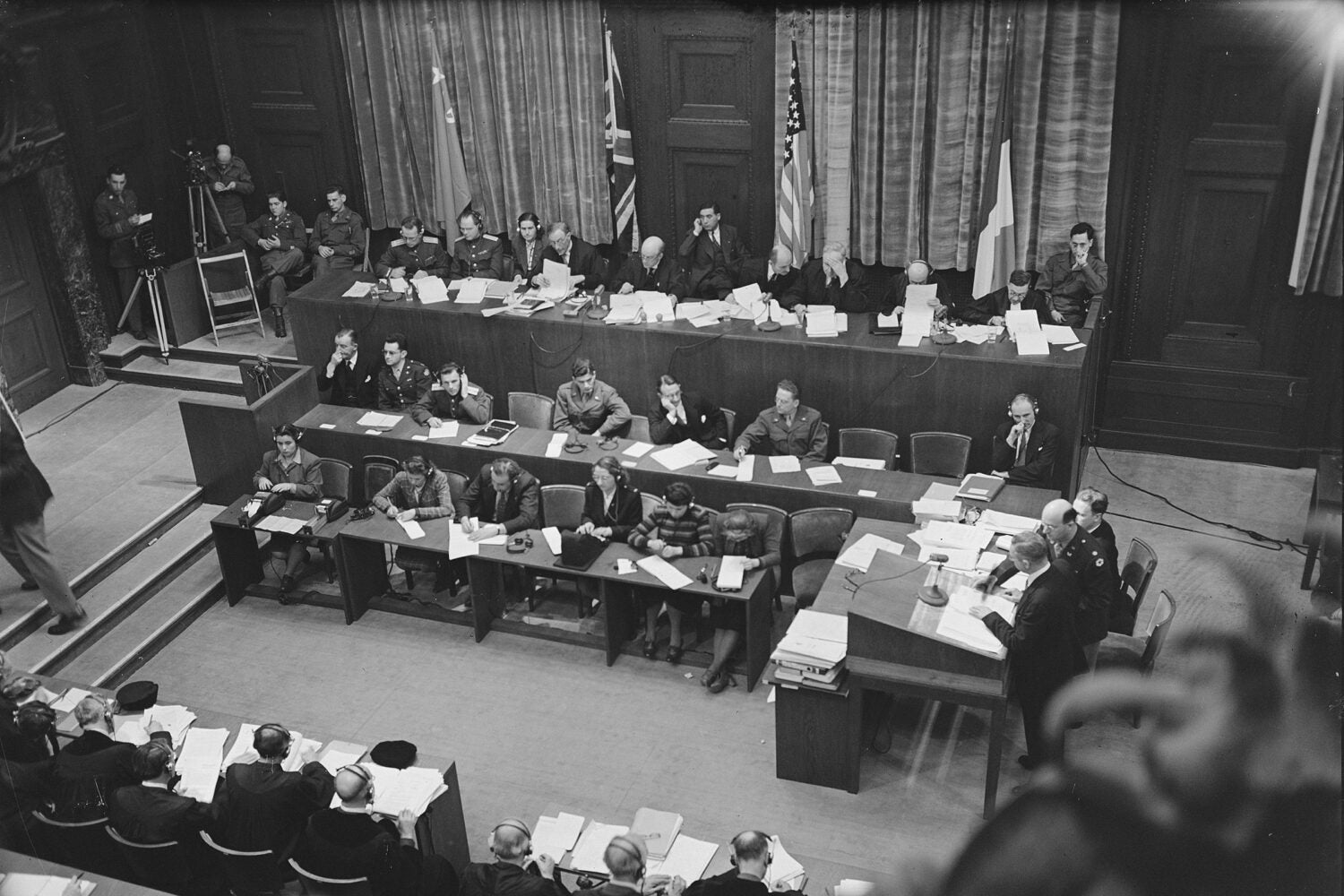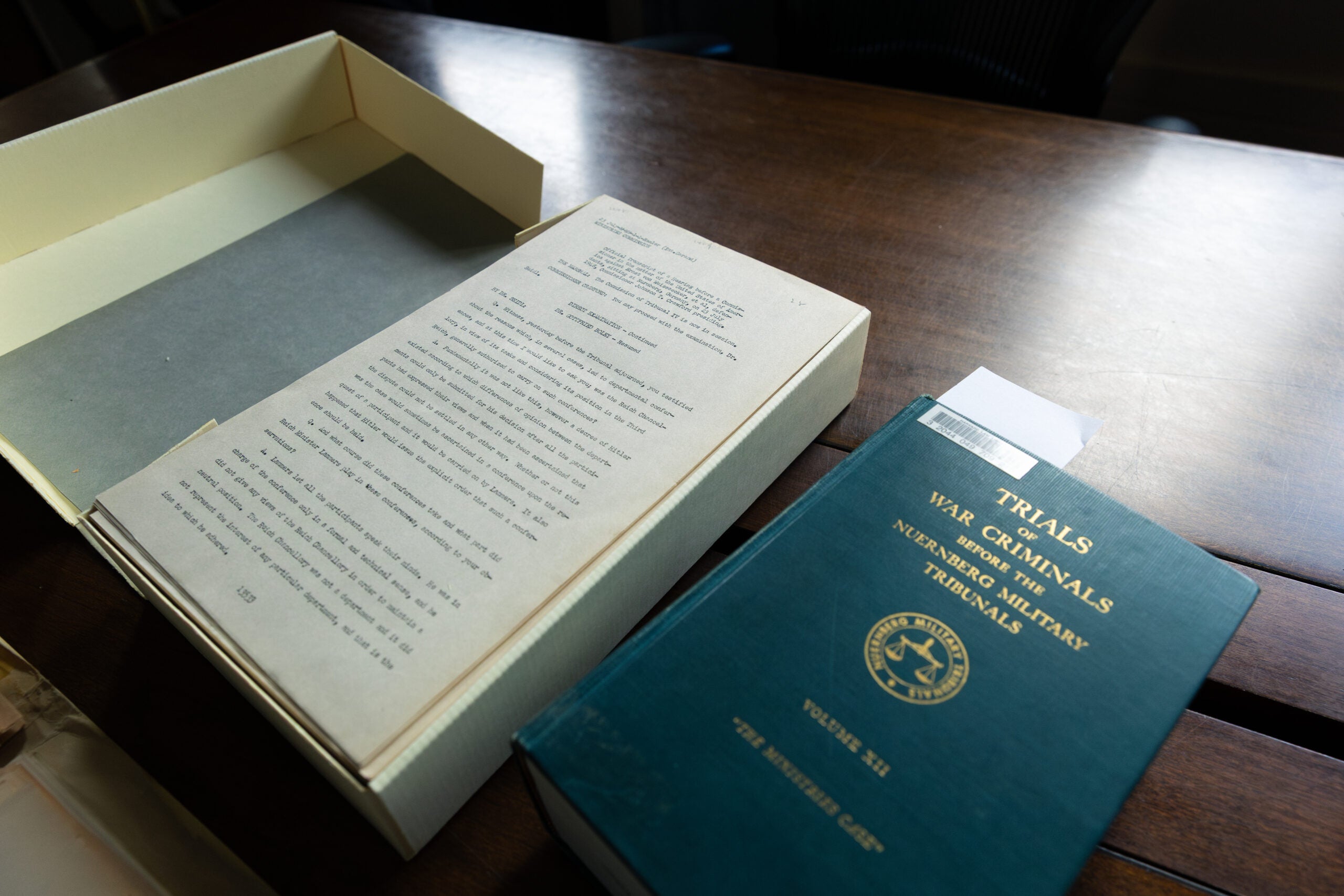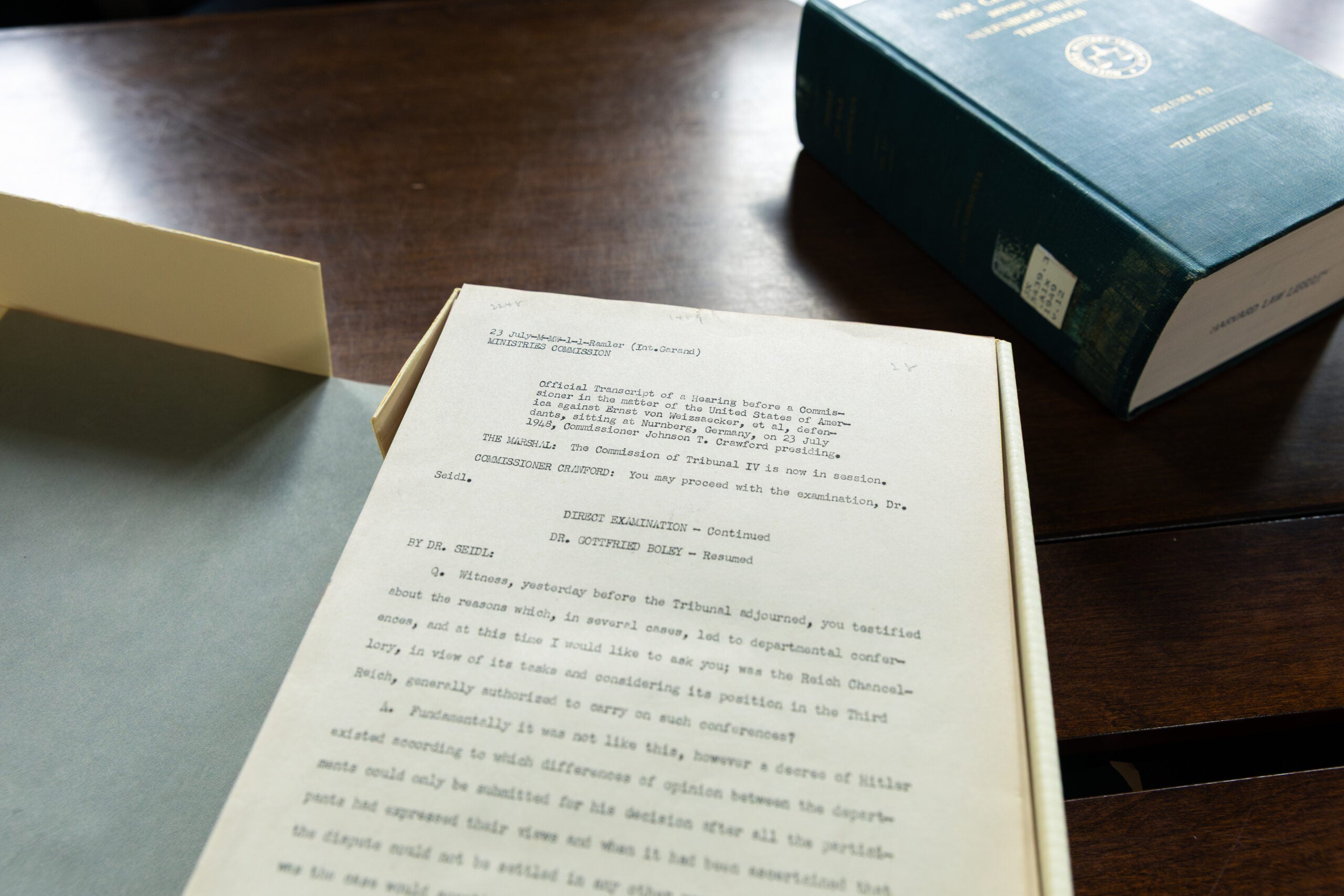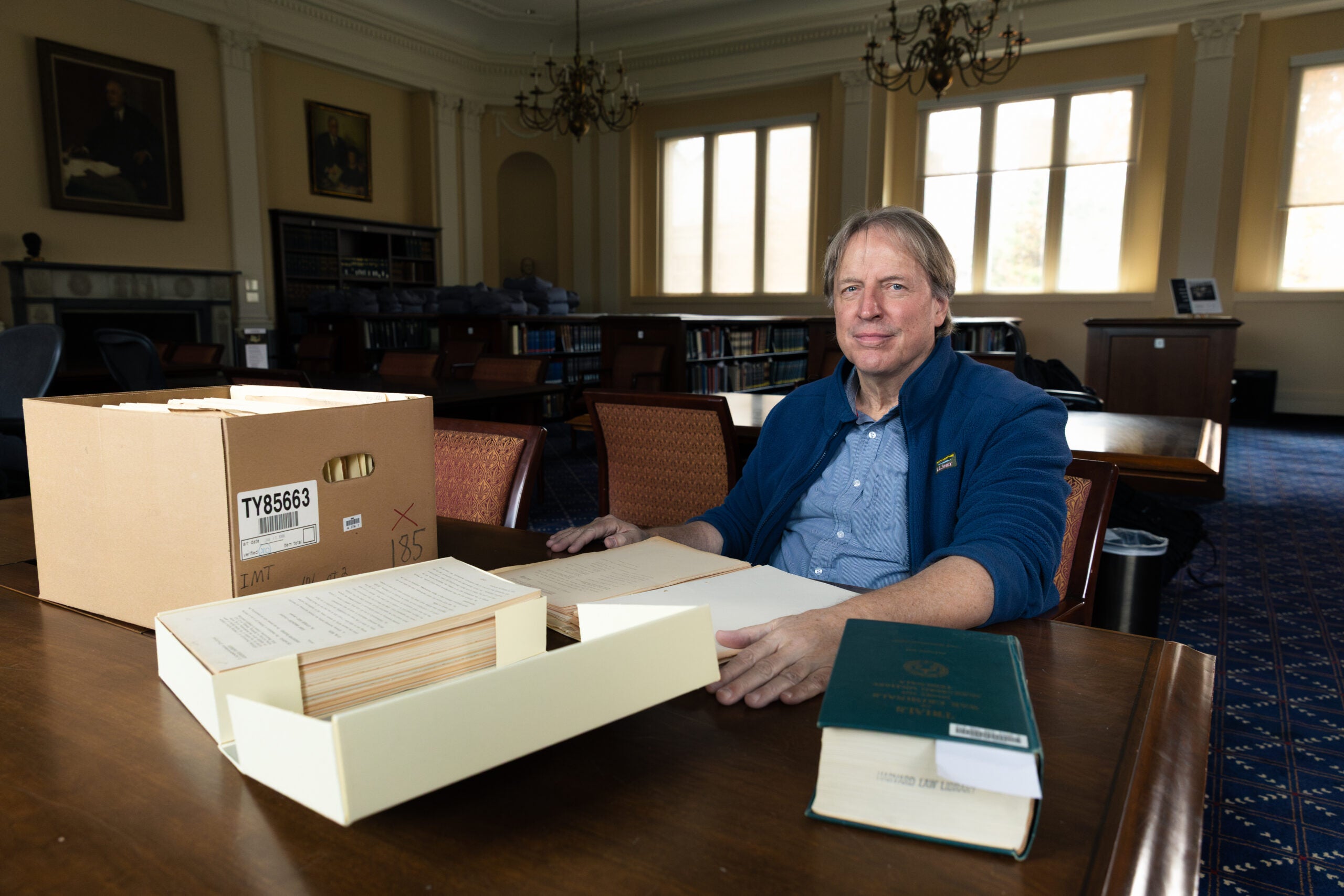Beginning today, the Harvard Law School Library is making available online the first complete, fully searchable, digitized collection of official evidentiary documents and trial transcripts in English from all 13 Nuremberg Trials, at nuremberg.law.harvard.edu.
On the 80th anniversary of the beginning of the first trial on November 20, 1945, researchers, scholars, and learners around the globe for the first time have open access to a fully searchable digital archive. Led by the library’s Nuremberg Trials Project, the effort to digitize, transcribe, and catalog official documents from the library’s Nuremberg Trials collection has spanned more than a quarter century.
“Eighty years after the Nuremberg Trials began, the efforts by prosecutors, judges, and others to seek a measure of justice in the aftermath of monstrous atrocities stand as a landmark moment in the history of law and society,” said John C.P. Goldberg, the Morgan and Helen Chu Dean and Professor of Law at Harvard Law School. “The decades-long endeavor to digitize and, for the first time, to make these indispensable records available to the world is a testament to the power of universities to foster the search for truth by preserving and sharing knowledge.”
Considered by many to be the most significant series of criminal hearings in modern history, the Nuremberg Trials were initiated to prosecute Nazi war crimes and crimes against humanity committed against Jews and members of other minority groups. Six million Jews were murdered by the Nazi regime during the Holocaust and millions more victims perished. The proceedings helped establish a permanent historical record of Holocaust atrocities and further efforts to establish universal wartime conduct standards.
The library’s collection, the most complete set of Nuremberg Trials documents outside that of the United States National Archives, offers more than 750,000 pages of transcripts, briefs, and evidence exhibits from the 13 cases brought against Nazi military and political leaders from 1945 to 1949. The library received the bulk of its collection in 1949 when the trials concluded and has added documents donated over the years by tribunal participants.
“These voluminous primary materials offer a trove of insights into the day-to-day operations of Nazi Germany and its pursuit of war and reprisal,” said Jonathan Zittrain ’95, vice dean for Library and Information Resources and George Bemis Professor of International Law. “Researchers and the general public can now go beyond summaries to see just what facts and testimonies were collected, how they were challenged, and how differing accounts were or weren’t reconciled to conduct and resolve an unprecedented set of trials.”
In the first Nuremberg Trial, the International Military Tribunal (IMT) tried and convicted 19 of the most powerful and influential Nazi leaders and six German organizations. In the 12 subsequent proceedings convened by the U.S., prosecutors successfully charged and convicted nearly 200 defendants from the Nazi military, judiciary, medical community, and other sectors.
The Nuremberg Trials Project commenced in 1998 with the goal of preserving, creating, and presenting online versions of the library’s collection. At the time, the original documents were stored in boxes, rarely accessed, and beginning to “literally crumble,” according to the project’s longtime technical lead, Paul Deschner.
Since the digitization project began, the library’s online Nuremberg Trials document archive has 400-700 unique website visitors daily and has supplemented the work and research of historians, authors, artists, and descendants of survivors.
Amanda Watson, Harvard Law School’s assistant dean for Library and Information Services, emphasized that the provision of open public access to the full collection will ensure the preservation of historically accurate source data and information about Nazi Germany and potentially help close historical gaps.
“Preserving legal information is essential work, but preservation alone is not enough. We have a responsibility to open doors and connect this vital knowledge with the world,” said Watson. “This collection stands as an answer to one of history’s most critical questions: How can law rise to meet moments of international crisis? Today, we ensure that answer is not locked away but available to all. We believe when we make justice visible, we make it possible.”
Deschner praised project staff members for undertaking the “extremely time-consuming and resource intensive” work of reading, describing, and cataloging each document in the collection. He also recognized the more recent integration of cutting-edge AI tools by project staff, enabling greatly expanded searching.
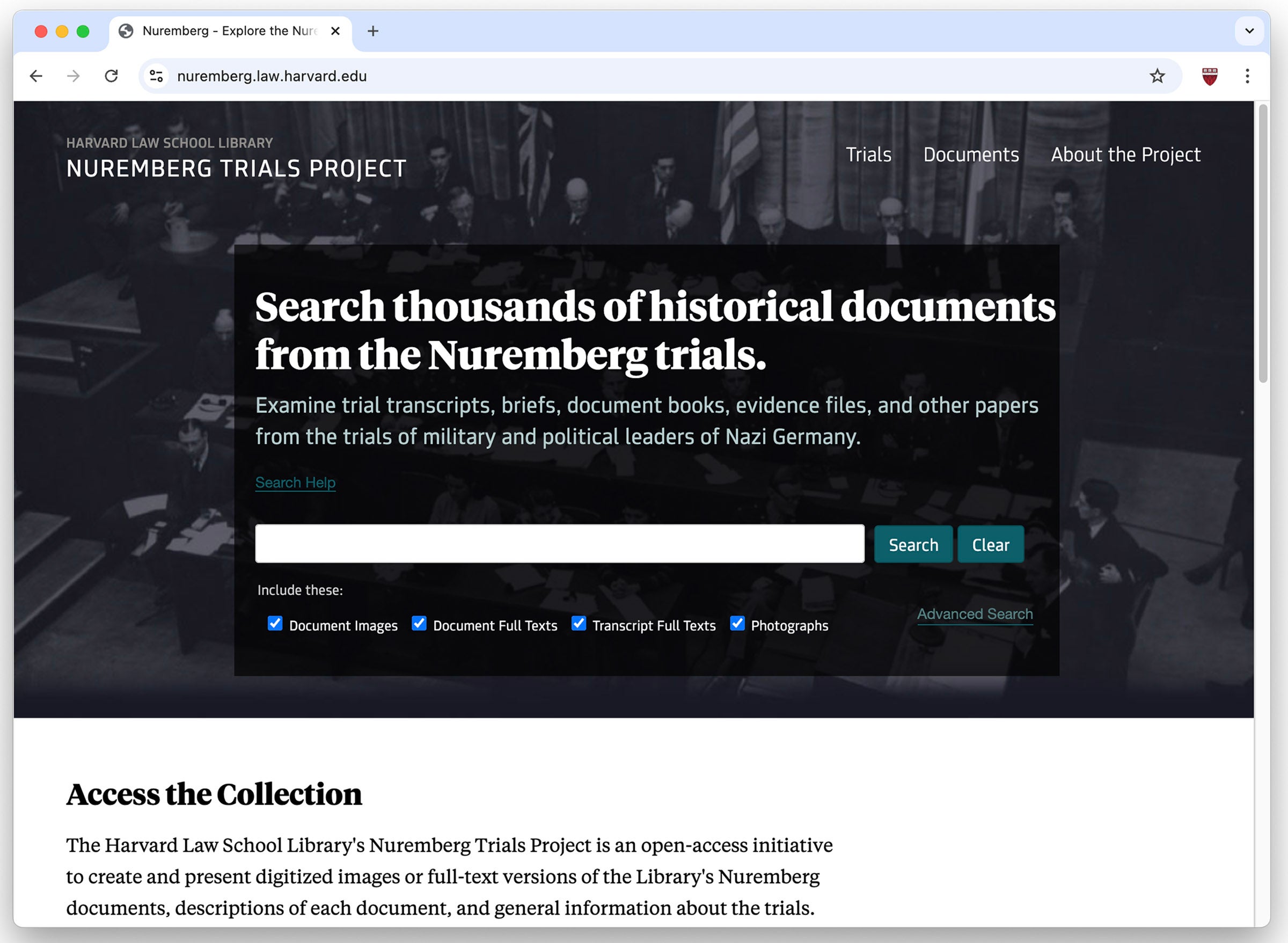
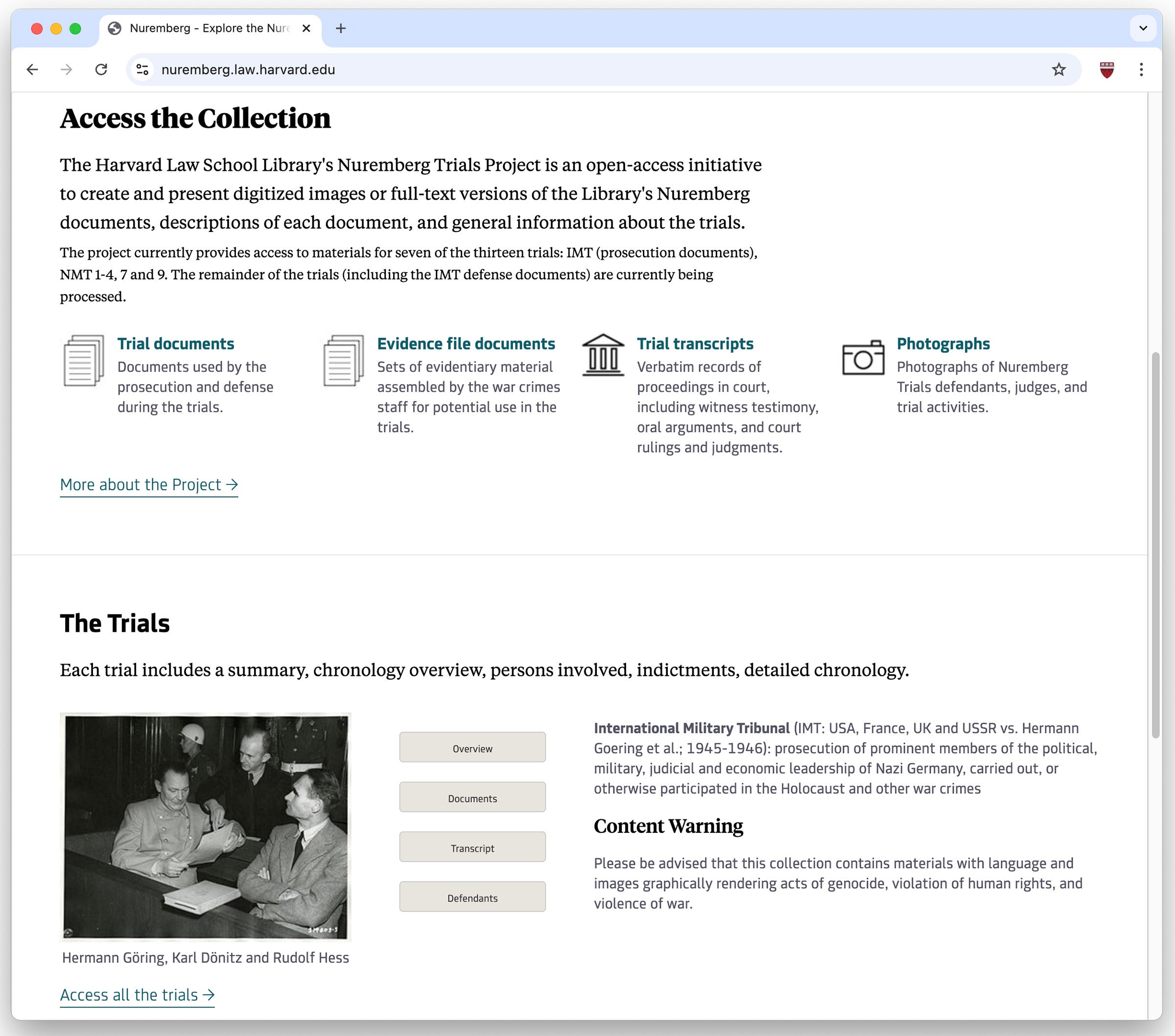
“What makes our project unique is its emphasis on making documents discoverable for the user,” said Deschner. “We’ve worked hard to provide highly accurate full-text searchable versions of documents and transcripts as well as carefully curated descriptive data of them, which together allow bringing to light even the most obscure materials.”
Following the release of the complete digitized collection, members of the public will be able to search for specific Nuremberg Trials documents or groups of documents, view document analysis information, and access images associated with specific documents. Users can also access trial transcripts, which will be searchable via keyword and include in-text citations that link to underlying source material. The vast majority of the materials, primarily in English, are searchable via metadata today and will become fully searchable via keyword in the coming weeks.
The library will continue to administer and manage the archive site with the goals of preserving the historical record and ensuring all members of the public have open access to the documents that catalogue Nazi atrocities and memorialize this landmark event in the history of international law.
The leaders of the Nuremberg Trials Project have already started to digitize historical records from other international military trials, including the International Military Tribunal for the Far East (IMTFE), also known as the Tokyo War Crimes Tribunal.
“We are excited about sharing this progress on the Nuremberg project, but still have much description and metadata work ahead of us. We have also started digitization on the IMTFE — the Tokyo Trials — and will need to do description and metadata work on that collection as well. It is a major commitment, but one we are proud to take on,” said Watson.
Want to stay up to date with Harvard Law Today? Sign up for our weekly newsletter.
